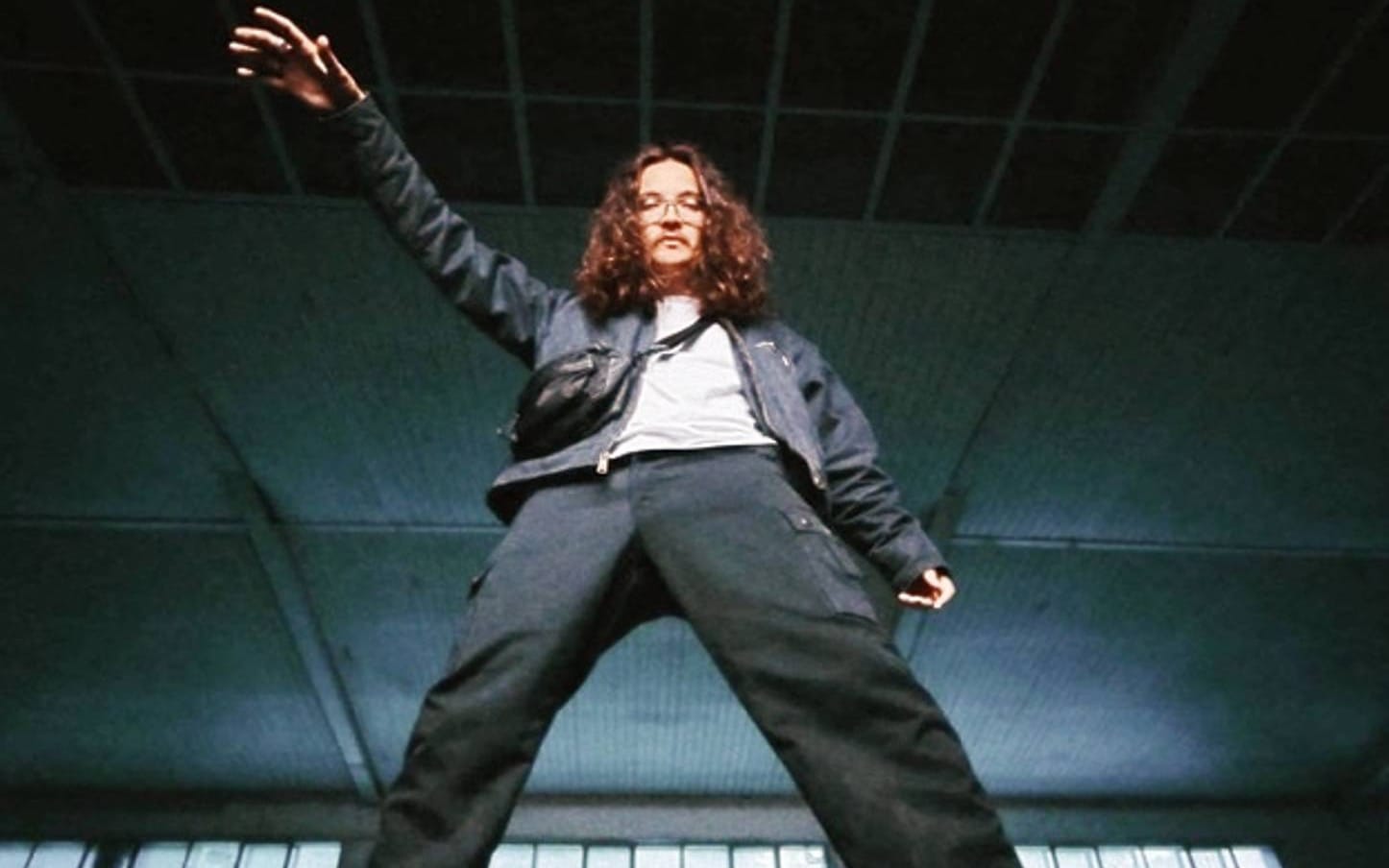Meet Whammyboy, the 24-year-old Norwegian artist, producer, and multi-instrumentalist whose sonic prowess has defined his own genre, “space pop”. In this candid and exclusive interview, Whammyboy takes us on his galactical journey.
Miriam Boulos: I’d love to start this interview by asking about your musical journey, what it really was that brought you closer to the field of music? Your parents were also in electronic music, how influenced by them have you been to kickstart your career in music?
Whammyboy: My parents influenced me in the beginning, when I was a child with a lot of trance and Euro dance. When I was 12, I started listening to Green Day, Rammstein, and was really into all the rock music at that time which made me play Guitar Hero. From Guitar Hero, I was like: “damn, guitar’s kind of sick”, I ain't gonna lie. So, I asked my dad if he could teach me because he knows a little bit of guitar. He did and then it started from there. I started producing when I was like 15. Yeah, pretty early because I grew up as a gamer. I was very much a gamer, like, the sweatiest winner. World of Warcraft, you know, League of Legends. Having access to the internet was very natural, many gamers actually started to produce. So, I know a lot of gamers who are producers, and then I downloaded FL Studio. Because, you know, when you're gaming, in between the gaming you can make something.
MB: Interesting shift from gaming to music! Now, tell us more about your latest EP. The title Space Pop encapsulates what you have come to coin as your own unique music genre. How would you describe this record?
WB: “Space Pop” for me is just the term so I can define what I want and fuse and mix genres as I want since I'm not really into the purity of genres. I like the mixing, that's what is kind of exciting to me. The sound is very much a culmination of all the sounds I've loved throughout my whole life. So, you’ve got some dance electronic music elements, you’ve got like the indie/band vibes that I loved when I was a teen and you’ve got pop, which I love. You know, it’s like, my whole musical journey culminates into songs and that's how it becomes. It's less of trying to hit like a trend and more of just an expression of everything I know and love at the point when I write it.
MB: I heard it and I loved it. Your EP gives me this unconventional pop rush that pushes you out of your body. I truly couldn't stop myself from literally bopping to it. I was wondering if Scandi pop as a genre with its beats that make you feel euphoric with its singalong melody with electronic backbones, did it play an influence on your sounds?
WB: It probably does because that's what's on the radio usually in Norway. I think I'm a bit unusual in the sound in Norway. I think many people in Norway view my sound as not Norwegian.
MB: “Goosebumps”, a track on the record, actually really reminds me of Tove Lo’s blend of pop, electropop, and synth-pop, were there any particular references you pulled for this one?
WB: I wrote one song first and I had the same sounds. Then I was like “this song doesn’t work” so I tried to use the same kind of sounds to make another song. I named the project file 90’s trance, that's what I was thinking at first. I was like: “this is probably a trance song”. But then I started singing it, and writing. After a while, I was like: “maybe it can be like a Daft Punk mixed more housy kind of thing?” It's also a culmination of many things but I really love Daft Punk. So, the bassline is more similar to something I would play on the guitar, actually.
MB: You’re currently working on your second EP, Volume 2, how is this project different from the first one?
WB: I think it's part two of part one, but some of the songs are maybe a bit bouncier. After playing live, I've really gravitated towards the dancy kind of songs because they work so well, in the live context. It’s very uniting to dance and clap and sing together!
MB: You just got home from a tour, taking your music to Germany, Paris, and various cities across Norway. Is this your first tour and how was that experience?
WB: It was really fun. We played some festivals. Reeperbahn was really fun in Germany, in Hamburg. It was really exciting to meet people from other countries. It was also nice to see that, for example, in Paris and still in Hamburg and Berlin, this music still works. Even in other countries, people think it's fun. It’s something about the unifying thing about music for me, that is really appealing. So, I'm always getting people to clap and dance and all that, because I remember us being 12 years old seeing Green Day at Oslo Spektrum the first time, and it was a life changing experience. The energy and how Billy Joe just gets the crowd hyped all the time really stuck with me. I’d wanna be like him.
MB: Now, I know music gives you a sense of belonging, is producing music as therapeutic for you?
WB: Absolutely. For me, making music and producing are the same thing. So, I pull up the program, and I start to experiment with sounds and grooves. I pull up my mic and I'm singing and it's all going very fast. My attention span doesn’t last long for me to work very slowly. I need to work extremely fast so it's very chaotic. I start hearing how this “sound chaos” is beginning to form into something. This is when I start working a bit slower, when I can see the shape of the song come together. And then I write some lyrics and I stand in my room just dancing and singing. Sometimes I get moved while doing so, I cry while producing. It just feels like it's something I needed to say or express that I didn't know I needed to express. Because when I write lyrics, too, it's the subconscious. I let the subconscious control or go into the focus more than my “thinking brain”. I’m just singing words that I heard in my head, and I write down what I said, like: “wow, this is what I'm thinking”. When I write, I don't always know what I’m gonna write about. So, when I see it form together, I'm like: “oh this is what I’m thinking about these days”.
MB: I bet you revolve almost your everyday life around your passion, which is music. Does it ever weigh a little too much your life or on your creativity? Do you sometimes get a sense of? “Okay, let me do something else today, maybe not music”?
WB: I base so much of my life around music so when I feel I don't succeed at doing something, if I tried to make some music, then I'm like: “ah, it was not good today”. Or, if something doesn't go the way I want, it can really put a toll on my personal life because I don't separate the two. So, it's easy to go into a downhill spiral. If I suck at music, then i suck as a person. I really try to not let it affect me, but it really does. I've been painting sometimes. Honestly with painting I'm not good, I'm not gonna lie. I'm not good. With music it’s higher stakes obviously.
MB: Any other hobbies than painting?
WB: Actually, the bandmates and I play World of Warcraft, maybe once a week or something? We're getting to the point where two three hours then we're done. Back in the days, I could game for like, 10 hours.
MB: What's next for you Whammyboy?
WB: Definitely writing more music and experimenting for the sound of the second EP, which is in the works now. I also want to work on my album, and I want the album to be more of a concept album. And hopefully it’s also more touring and playing: just living that Whammy-life.
###







Comments